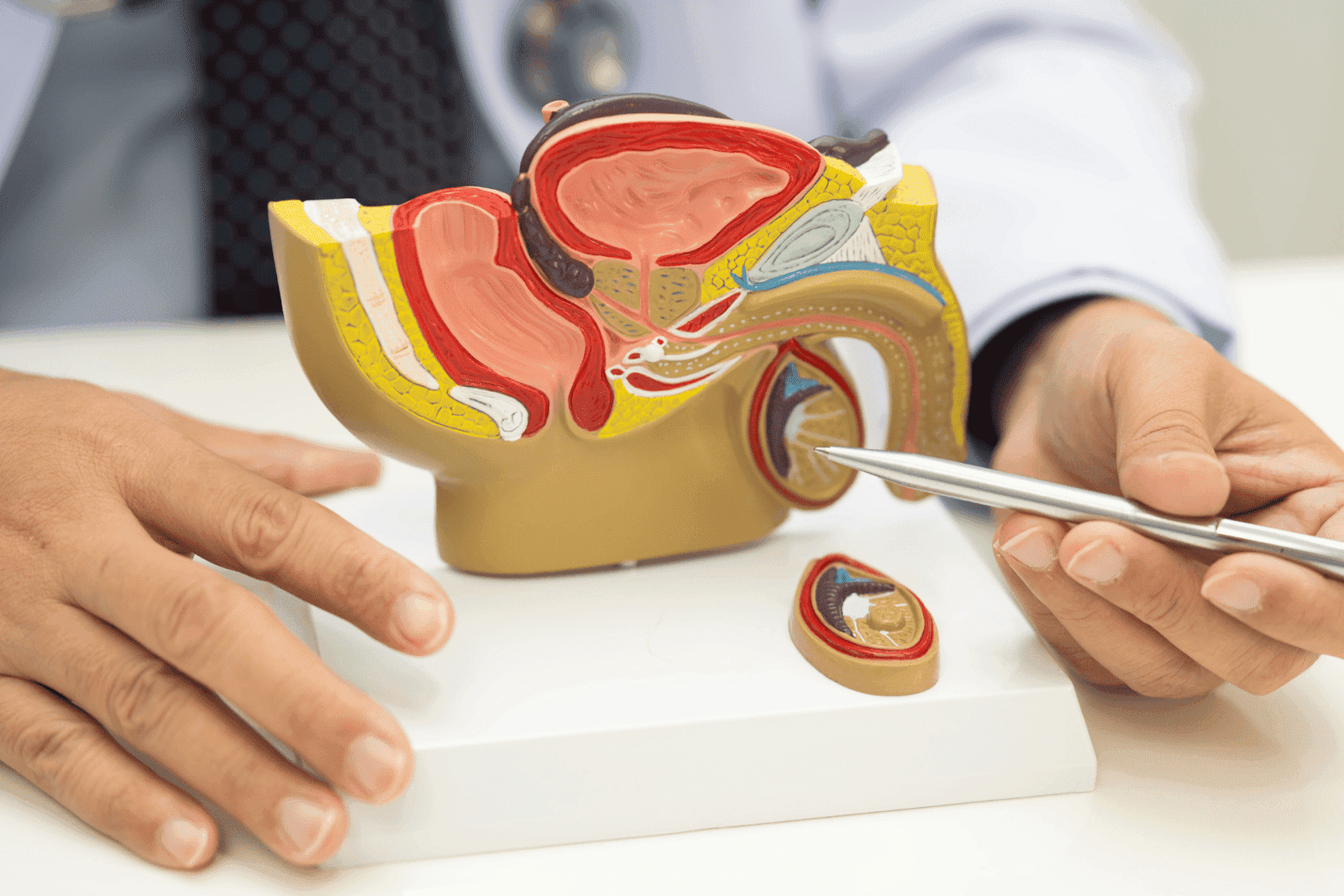How Long Does It Take for Sperm to Regenerate Fully?
Sperm health is a vital aspect of male fertility and overall reproductive wellness. Whether you're planning to start a family, recovering from illness, or simply curious [...]
Read More
Medically reviewed by Alan Lucks | MD, Alan Lucks MDPC Private Practice - New York on October 15th, 2025.
Spermatogenesis requires 64-74 days for initial cell development, followed by 14-21 days for maturation in the epididymis, totaling approximately 74-95 days for complete regeneration.
Scrotal temperature above 98.6°F can halt production entirely—hot tubs, saunas, and tight clothing can raise testicular temperature by 2-7°F, damaging developing cells for months.
Heavy alcohol consumption (more than 14 drinks weekly) reduces testosterone by 23% and decreases sperm concentration by 33%, while smoking damages DNA in up to 30% of sperm cells.
Zinc deficiency affects 17% of men globally and can reduce sperm count by 74%—oysters contain 74mg per serving (673% daily value), making them highly effective for reproductive health.
Varicocele affects 15% of men and increases scrotal temperature by 2.6°C, reducing sperm concentration by 65% and motility by 50% compared to unaffected men.
Sperm health is a vital aspect of male fertility and overall reproductive wellness. Whether you're planning to start a family, recovering from illness, or simply curious about how your body works, understanding how long it takes for sperm to regenerate fully can provide valuable insights. This article explores the science behind sperm production, factors influencing sperm regeneration, and ways to support optimal sperm health.
Sperm production, also known as spermatogenesis, is a continuous biological process that takes place in the testes. It involves the development of immature germ cells into mature sperm cells capable of fertilizing an egg. On average, this process takes about 64 to 74 days from start to finish. The testes, which are housed in the scrotum, provide an optimal temperature for sperm production, slightly cooler than the body's core temperature, which is essential for the proper development of sperm cells.
During spermatogenesis, cells undergo several stages of division and maturation. Once mature, sperm are stored in the epididymis, where they gain motility and the ability to fertilize. The entire cycle ensures a steady supply of fresh sperm, which is crucial for male fertility. Interestingly, the process is influenced by various factors, including hormonal levels, age, and overall health. Testosterone, in particular, plays a vital role in regulating spermatogenesis, as it stimulates the production of sperm and maintains the health of the reproductive system.
 How Long Does Full Sperm Regeneration Take?
How Long Does Full Sperm Regeneration Take?While the initial development of sperm cells takes approximately 2 to 2.5 months, complete regeneration, including the replenishment of sperm reserves, can take up to 3 months. This timeline means that any changes in lifestyle, health, or environment may take several weeks before reflecting in sperm quality and quantity. Factors such as diet, exercise, and exposure to environmental toxins can significantly impact sperm health. For instance, a diet rich in antioxidants, vitamins, and minerals can enhance sperm quality, while excessive alcohol consumption or smoking can have detrimental effects.
Understanding this timeline is important for men undergoing fertility treatments, recovering from illness, or making lifestyle changes aimed at improving reproductive health. Patience is key, as sperm health improvements are gradual and require consistent care over time. Additionally, studies have shown that stress management techniques, such as mindfulness and regular physical activity, can also contribute positively to sperm production. By adopting a holistic approach to health, men can optimize their reproductive potential and enhance their overall well-being.
Sperm production is influenced by a variety of factors, ranging from genetics and age to lifestyle and environmental exposures. Recognizing these factors can help men take proactive steps to support their reproductive health.
As men age, testosterone levels naturally decline, which can affect sperm production and quality. Hormonal imbalances, such as low testosterone or thyroid issues, may also disrupt spermatogenesis. Regular medical check-ups can help identify and manage these conditions effectively. Additionally, age-related changes in the testicular environment can lead to decreased fertility. Research indicates that men over 40 may experience a decline in sperm motility and an increase in sperm DNA fragmentation, which can complicate conception efforts. Therefore, understanding the hormonal landscape and its fluctuations is crucial for maintaining reproductive health as one ages.
Smoking, excessive alcohol consumption, poor diet, and lack of exercise can negatively impact sperm regeneration. Conversely, a balanced diet rich in antioxidants, regular physical activity, and avoiding harmful substances promotes healthier sperm production. Studies have shown that diets high in fruits, vegetables, whole grains, and lean proteins can enhance sperm quality. Moreover, maintaining a healthy weight is vital, as obesity has been linked to hormonal imbalances and reduced sperm count. Engaging in regular exercise not only helps manage weight but also boosts testosterone levels, creating a more favorable environment for sperm production.
Exposure to toxins such as pesticides, heavy metals, and radiation can impair sperm production. Men working in high-risk environments should take precautions and consult healthcare providers about minimizing exposure. In addition to occupational hazards, everyday environmental factors, such as air pollution and endocrine-disrupting chemicals found in plastics, can also contribute to declining sperm health. Awareness of these risks is essential, as simple changes like using glass containers instead of plastic and ensuring proper ventilation can mitigate some of the harmful effects associated with these exposures.
Certain illnesses, infections, and medications can temporarily or permanently affect sperm production. For example, fevers can reduce sperm count for several weeks, while some chemotherapy drugs may cause long-term infertility. Consulting a healthcare professional is essential to understanding these impacts. Conditions such as diabetes and varicocele, a swelling of veins in the scrotum, can also lead to decreased sperm quality. Furthermore, some over-the-counter and prescription medications, including certain antibiotics and anti-androgens, may interfere with hormone levels and sperm production. Therefore, men must discuss their full medical history and any medications they are taking with their healthcare provider to assess potential risks to their reproductive health.
Given that sperm regeneration takes about three months, adopting healthy habits during this period can significantly improve sperm quality. Here are some practical tips to support optimal sperm health:
Foods rich in vitamins C and E, zinc, folate, and omega-3 fatty acids contribute to sperm health. Incorporate plenty of fruits, vegetables, nuts, and lean proteins into your meals to provide essential nutrients for spermatogenesis.
Moderate physical activity helps regulate hormone levels and improve circulation, both of which are beneficial for sperm production. However, avoid excessive exercise that can lead to hormonal imbalances or overheating of the testes.
High temperatures can impair sperm production. Avoid hot tubs, saunas, and tight clothing that increase scrotal temperature. Wearing loose-fitting underwear and taking breaks from prolonged sitting can help maintain optimal conditions for sperm regeneration.
Both smoking and heavy alcohol use are linked to reduced sperm count and motility. Quitting smoking and moderating alcohol intake can lead to noticeable improvements in sperm quality within a few months.
Chronic stress can disrupt hormone balance and reduce sperm production. Techniques such as meditation, yoga, or counseling can help manage stress effectively.
If you have concerns about fertility or sperm health, consulting a healthcare professional is essential. Persistent issues such as low sperm count, poor motility, or difficulty conceiving may require evaluation and treatment.
Telehealth services offer a convenient and accessible way to discuss reproductive health concerns with qualified doctors. Doctronic.ai provides 24/7 video visits with licensed physicians across all 50 states, making it easier than ever to get expert advice from the comfort of your home.
 What to Expect During a Telehealth Consultation
What to Expect During a Telehealth ConsultationA telehealth visit can include a thorough review of your medical history, lifestyle factors, and symptoms related to fertility. Doctors may recommend diagnostic tests such as semen analysis or hormone panels and provide personalized treatment plans or referrals if necessary.
Using AI-powered platforms like Doctronic.ai ensures that you receive care informed by the latest medical research. Their AI doctor synthesizes peer-reviewed medical knowledge to offer fast, accurate answers and treatment recommendations, making primary care more personal and accessible.
Advances in medical technology and artificial intelligence are transforming how men manage their reproductive health. Doctronic.ai represents a new frontier in telehealth, combining AI expertise with human doctors to deliver comprehensive care.
With over 10 million users, Doctronic.ai has become a trusted resource for quick, reliable medical advice. Whether you have questions about sperm regeneration timelines, fertility concerns, or general health, their AI doctor provides answers in seconds, drawing on the most current peer-reviewed research.
Unlike traditional healthcare models, Doctronic.ai offers unlimited access to personalized care that remembers your medical history and adapts to your needs over time. This approach is particularly valuable for men tracking changes in sperm health and fertility, as it allows for ongoing monitoring and tailored recommendations.
Sperm regeneration is a complex but well-understood process that takes approximately three months to complete. During this time, lifestyle choices, environmental factors, and overall health play crucial roles in determining sperm quality and fertility potential.
By adopting healthy habits, managing stress, and seeking timely medical advice when needed, men can support optimal sperm regeneration and improve their chances of conception. Telehealth services like Doctronic.ai make it easier than ever to access expert care and stay informed about reproductive health.
Remember, patience and consistency are key. Changes made today may take several weeks to reflect in sperm health, but the benefits can last a lifetime.
Embarking on the journey to improve your sperm regeneration and overall reproductive health doesn't have to be a solo venture. With Doctronic, you have a partner in your corner 24/7. Our AI Doctor offers free, instant, and personalized medical advice, drawing from the most current peer-reviewed research. If you're looking for a deeper dive into your health, our telehealth video visits connect you with real doctors for less than $40. Take control of your fertility and overall well-being today. Skip the line. Talk to an AI Doctor Now, for free.
Complete sperm renewal takes 2-3 months, meaning lifestyle improvements require patience to show measurable results in semen analysis. Focus on maintaining cool scrotal temperature, adequate zinc intake, and avoiding alcohol/tobacco for optimal production. If you're concerned about fertility or have questions about reproductive health, Doctronic can provide personalized guidance.
Sperm health is a vital aspect of male fertility and overall reproductive wellness. Whether you're planning to start a family, recovering from illness, or simply curious [...]
Read More